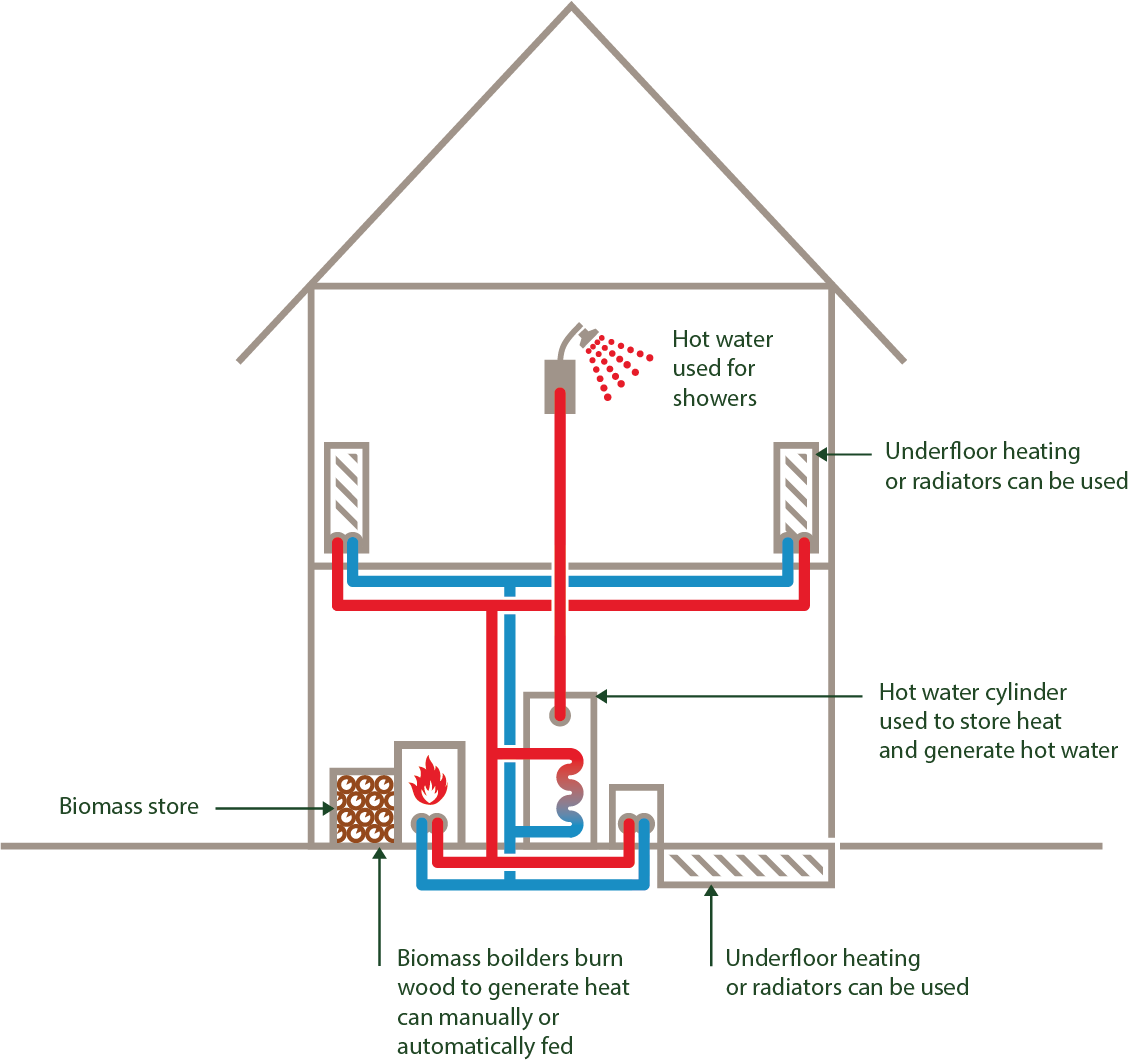
Literally used as a substitute for a conventional gas boiler, biomass boilers offer the same high-temperature output but with the benefit of being fuelled by a sustainable, carbon-neutral resource. They can burn logs, pellets or chips (the latter is usually reserved for larger buildings or communal heating), and provide 100% of the power required for both heating and hot water systems.
As well as considering the pros and cons of biomass in terms of your build, you should bear in mind the residents’ need for information about living with a biomass boiler. Pellet boilers can run automatically, in much the same was as oil or gas boilers operate, but those fuelled with logs will require hand-filling. Logs may also require a larger storage area than pellets, but they can be cheaper than pellets if the supply is local – costs can be kept down even further if they are bought unseasoned, and left for a year before use. The best way to keep pellet costs down is to buy in bulk, but again, this will depend on the available storage space. It’s important that they understand the implications, as well as the benefits, of having a home with this type of technology installed.
The benefits of this particular renewable heat technology are as follows:
- Biomass boilers can provide a significant improvement against Part L of the Building Regulations due to the small carbon footprint of the fuel type.
In order to make a balanced decision, bear in mind these potential drawbacks:
- If there is no readily available source of wood locally, then a biomass boiler can be more expensive to run than a traditional gas model.
- Most biomass boilers require a specific moisture content for fuel, so wood needs to be carefully stored and dried before it can be used.
It’s also worth considering the following points:
- There’s a wide range of biomass boiler systems available, including both manual and automatic feed. Careful thought must be undertaken regarding how the system is to be managed by residents.
- Biomass boilers generally fall into two categories – those that can only take processed biomass pellets with a small tolerance in size of pellet, and those that can take a range of different fuel types. The latter is more expensive, but more flexible in terms of the fuels that can be used.
To find out more about biomass boilers, and to discuss whether they might be a suitable heating option for a particular project, please contact us.
